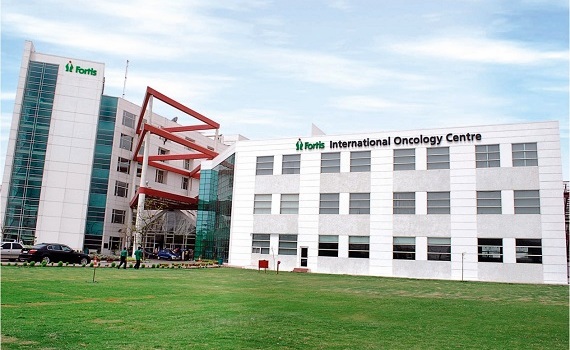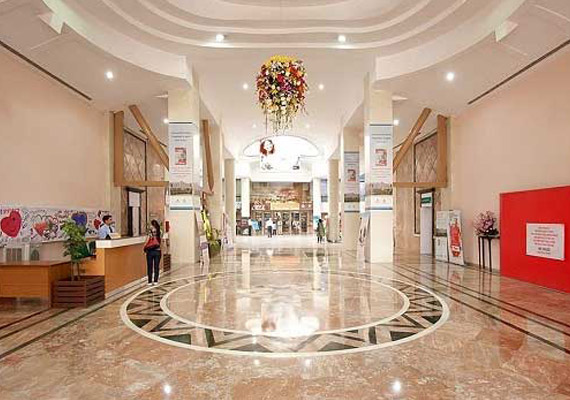Pediatric Inguinal Hernia Repair Treatment in India
treatment
starting from
Overview
Pediatric inguinal hernia repair is a surgical procedure performed to treat inguinal hernias in children. An inguinal hernia occurs when a portion of the intestines or abdominal tissues protrudes through a weak spot in the abdominal wall, creating a bulge in the groin area. Inguinal hernias are common in infants and children, and while they are not usually life-threatening, they can cause discomfort and pose a risk of complications if left untreated. Pediatric inguinal hernia repair involves surgically repairing the hernia and reinforcing the abdominal wall to prevent recurrence. This article provides a comprehensive guide to pediatric inguinal hernia repair, including its introduction, symptoms, causes, treatment, benefits, cost in India, and its significance in addressing childhood inguinal hernias.
Introduction to Pediatric Inguinal Hernia Repair:
An inguinal hernia is a common condition in children, particularly in infants and young boys. It occurs when a small portion of the intestines or abdominal tissues protrudes through a weak spot or opening in the inguinal canal, which is a passage in the lower abdominal wall near the groin. This results in a visible bulge in the groin area, especially when the child coughs, cries, or strains during bowel movements.
Pediatric inguinal hernia repair is a surgical procedure performed to correct the hernia and prevent potential complications. The surgery involves returning the protruding tissues to their original position inside the abdominal cavity and reinforcing the weakened abdominal wall to prevent the hernia from recurring.
Symptoms of Pediatric Inguinal Hernia:
Pediatric inguinal hernias may present with the following symptoms:
- Groin Swelling or Bulge: The most apparent sign of an inguinal hernia is a visible bulge or swelling in the groin or scrotum area. This bulge may be more noticeable when the child is standing, coughing, or straining.
- Discomfort or Pain: Inguinal hernias can cause mild to moderate discomfort or pain in the groin, which may worsen with physical activity or straining.
- Crying or Irritability: Infants with inguinal hernias may cry or show signs of irritability due to discomfort.
- Vomiting and Refusal to Eat: In some cases, an inguinal hernia may become trapped (incarcerated), leading to severe pain, vomiting, and refusal to eat. This requires immediate medical attention.
Causes of Pediatric Inguinal Hernia:
The exact cause of pediatric inguinal hernias is not always clear, but they occur due to a weakness in the abdominal wall. The following factors may contribute to the development of inguinal hernias in children:
- Congenital Weakness: Inguinal hernias are often present at birth or develop shortly after. In some cases, the inguinal canal does not close completely during fetal development, leading to a potential weakness.
- Increased Intra-Abdominal Pressure: Activities that increase intra-abdominal pressure, such as coughing, crying, or straining during bowel movements, can push abdominal contents through the weakened area, causing a hernia.
- Prematurity: Premature babies may have a higher risk of inguinal hernias due to the incompletely developed abdominal wall.
Treatment
Pediatric inguinal hernia repair is typically recommended for all inguinal hernias in children, as they are unlikely to resolve on their own and may lead to complications if left untreated. The surgical procedure involves the following steps:
- Preoperative Evaluation: Before the surgery, the child undergoes a thorough evaluation, including a physical examination and, in some cases, imaging studies to confirm the presence of the hernia.
- Surgical Procedure: The surgeon makes a small incision near the groin to access the hernia. The protruding tissues are gently pushed back into the abdominal cavity. The weakened abdominal wall is repaired and reinforced with stitches or mesh to prevent recurrence.
- Postoperative Care: Following the surgery, the child requires postoperative care, including pain management, wound care, and follow-up visits to monitor healing and recovery.
Benefits of Pediatric Inguinal Hernia Repair:
Pediatric inguinal hernia repair offers several benefits for children:
- Hernia Resolution: The primary benefit of the surgery is the correction of the inguinal hernia, relieving discomfort and restoring normal anatomy.
- Prevention of Complications: Repairing the hernia prevents potential complications, such as incarceration (trapping of herniated tissues), which can be life-threatening if left untreated.
- Improved Quality of Life: After the surgery, children can resume regular activities without the discomfort and restrictions caused by the hernia.
- Lower Risk of Recurrence: By reinforcing the abdominal wall, the risk of hernia recurrence is significantly reduced.
Cost of Pediatric Inguinal Hernia Repair in India:
The cost of pediatric inguinal hernia repair in India can vary depending on several factors, including the hospital or medical facility, the surgeon's expertise, the child's age, and overall health. On average, the cost of pediatric inguinal hernia repair in India ranges from ?30,000 to ?80,000 or more.
Conclusion:
Pediatric inguinal hernia repair is a common surgical procedure performed to treat inguinal hernias in children. These hernias can cause discomfort and, if left untreated, pose a risk of complications. The surgery involves correcting the hernia and reinforcing the abdominal wall to prevent recurrence. Pediatric inguinal hernia repair offers several benefits, including hernia resolution, prevention of complications, improved quality of life, and a lower risk of recurrence.
For children with inguinal hernias, pediatric inguinal hernia repair is a safe and effective treatment option. India's advanced medical facilities, skilled pediatric surgeons, and cost-effective healthcare services make it an attractive destination for parents seeking high-quality pediatric inguinal hernia repair procedures. However, parents should undergo a thorough evaluation, discuss the potential risks and benefits of the surgery with their child's healthcare team, and choose a reputable medical facility with experienced pediatric surgeons to ensure the best possible outcome.
How It Works
Need help in organizing medical travel to India?








